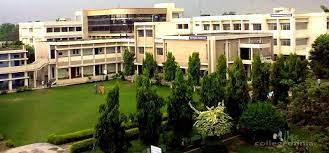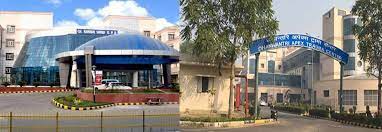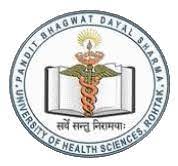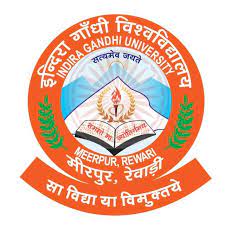Chemistry is the science that covers the composition, properties, structure, and reactions of molecules, atoms, and systems that include the two. Chemistry originated from the medieval art of alchemy, which sought to create gold through various transformations of materials. However, these experiments resulted in other scientific discoveries that created the basis for modern chemistry. Chemistry is strongly connected to physics, but it differs because the chemical analysis is made at an atomic level and substances change their structure, shape, or state. All this study is done with the purpose of understanding the origin of the substance. Chemistry is divided into materials science, quantum, organic, and inorganic chemistry. Students who earn a Master's degree in Chemistry (Master of Science) can specialize in kinetics, combinatorial chemistry, cluster chemistry, photochemistry, theoretical chemistry, and more.
Pursuing a Ph.D. degree in Chemistry leads to careers in research and science in disciplines such as chemical engineering, pharmaceutics, or the public sector. Some of the highest-paid career prospects are analytical chemists, engineers, healthcare scientists, toxicologists, and research scientists.
Eligibility:
Candidates who want to take admission in Ph.D. must have a post-graduate degree in Chemistry with at least 55% marks from a recognized university and must have passed the national level entrance examination or university level entrance examination. National level entrance exams like UGC NET / UGC CSIR NET / GATE / SLET or University entrance exams consist of written tests and personal interviews.
BENEFIT
Access to Better Jobs
Those with an undergraduate or a master's in chemistry can gain access to many good positions, but someone with a Ph.D. has even more access. Ph.D. holders will have the ability to conduct their own independent research, as well as manage fellow scientists within a laboratory setting. The degree itself will add credibility to their research and ensure that they have the experience necessary to gain entry into many high-paying jobs in the field of chemistry.
Career & Opportunities
The career path we choose has a major impression on various facets of our lives. Thus, it is important to choose a career wisely, but we are not prepared to take such a big decision at the correct time of our life. In earlier days, it was parents, teachers, and relatives who largely influenced our career choice, but nowadays students have become more aware of career options available– thanks to the dawn of the internet era. They can search the available career options as well as their prospects before making the final decision. However, one can also take advice from the elders as they are more experienced.
Chemistry is linked with biology, physics, and math but there are many career options in pure chemistry as well. Openings within science and technology are having exceptional growth across the world, and so those who study chemistry or other basic science can expect their career prospects to be bright. Chemistry encompasses the study of all things chemical such as chemical processes, chemical compositions, and chemical engineering – with the aim of better understanding the way in which materials are structured, how they change and how they react in a certain situation. Chemistry graduates may choose to apply the knowledge of chemical understanding in several ways. It can be used to analyze all matter and also our entire environment. Chemistry is the study of matter, the chief goal of studying chemistry is to understand what matter is made of, and what properties it has. We can feel the influence of chemistry from drinking water to medicines to keep us alive. In that sense, chemistry is really a study of life processes. Chemists nurture the ways by which our physical world functions. Chemistry graduates can pursue a wide-ranging career path.
Ø Chemistry Career Opportunities in Research
Research careers are more diverse than they might first appear, as there are various purposes to conduct research in different sectors. It may be done in a university, where research is combined with teaching; in a public-sector research center, in a pharmaceutical company, working on the development of new drugs. A bachelor’s degree in chemistry enables you for a career in research as you are well-versed in key lab techniques and analytical methods, to conduct and report research, and to combine all the sciences, not just chemistry. A technician job is possible right after college or you can utilize a chemistry degree as a first step for advanced studies in chemical research, biotechnology, nanotechnology, materials, physics, and biology. Chemistry graduates have plenty of choices to utilize their knowledge within a range of research sectors such as chemical and related industries, chemical engineering, healthcare, and more.
Though the job of a research scientist varies, chemistry careers in research mostly are based in laboratories, where research is conducted by teams following rigorous scientific methods and standards most of which you will already be acquainted with after completing a chemistry degree. The research topic may be based on new medicines and vaccines, forensic analysis, improving environmental issues, and the development of new chemical products and materials.
While a bachelor’s degree in chemistry will open many entry-level doors in this field, a master’s or even a Ph.D. in a related specialization will help you to stand firmly for particularly high-level research roles.
Ø Chemistry Career Opportunities in Healthcare - Healthcare careers for chemists are also largely based in laboratories. There is also an opportunity to take care of and investigate the patient's situation. In clinical biochemistry or healthcare science, your tasks will be to analyze blood, urine, and other bodily fluids in order to diagnose and treatment of different diseases. While some roles will require clinical expertise (and a medical qualification), many scientific roles in healthcare simply require scientists to link with clinicians in order to interpret patients’ test results, acting as support in diagnosis and assessment. The chemists are unable to advise on medical treatment. Their work is vital in certifying the results’ accuracy, in finding the root causes are found. If you go for healthcare career in chemistry, you will probably be working as part of a team comprised of fellow chemists, biochemists, biologists, clinicians, and pathologists.
Ø Chemistry Career Opportunities in the field of Teaching - With a chemistry degree, you can opt for teaching in college, high school, middle school, and elementary school. But you should have a master's or doctoral degree to teach in a college. For elementary and secondary teachers, a bachelor’s degree plus courses and certification in education are required.
Ø Lab Technician Career - Lab technicians work in a scientific team to afford technical support such as sampling, testing, measuring, recording, and analyzing results. Working places may be Industry, hospitals, government departments, research institutions, and Schools/Colleges/Universities. Senior and lead technicians are involved in more managerial work, including budgeting and ordering resources, risk assessments, and staff supervision & training. Working in an educational place could include providing technical support to teachers and students, making sure the right materials are available for a particular lesson, and aiding individual students on research projects.
Ø Forensic Science -Chemistry students tend to work in the area of crimes against property (burglary and arson) This includes the analysis of contact traces in a lab like glass, paint, and chemicals, also fire investigation, accident reconstruction & serial number restoration. Patience and concentration are the two important things that are required in this profession. Evening and weekend call-outs and some unsocial hours may also be there. Most of the work is tedious, meticulous, detailing oriented.
Ø Patent Examiner -Here the role involves Searching through prior patents and examining the application to decide whether the alleged invention is sufficiently new. This area of work is on the surface as there is increasing demand due to the filing of new applications in China and Japan and the growth in energy technology patents.
Ø Chemistry Career Opportunities in Science communication and writing field -In this role, you must work on manuals, patents, news media, and research proposals. A degree in chemistry polishes the organizational and writing skills needed for a technical writing career path. A chemistry major covers all the basic notions of science, as you take courses in biology and physics in addition to chemistry. You can work as a scientific journalist, editor, or writer to help non-scientists understand science, e.g. the production of product manuals for cars and computer software.
Ø Chemistry Career Opportunities in Management Fields -Many graduates with chemistry and other science degrees do not want to work in science, but are willing to take positions in retail, at grocery stores, in restaurants, family businesses, or any of a host of other careers. A college degree helps the graduates to move toward management positions. Chemistry majors are detail-oriented and precise. Normally, they are hard-working, work well as part of a team, and are capable to manage their time. A chemistry degree can make you ready to succeed in any business scheme.
Ø Veterinarian- It takes a lot of chemistry expertise to succeed in the veterinary field, beyond what most doctors require. The entrance exams for veterinary school emphasize organic chemistry and biochemistry, so a chemistry degree is a proper pre-vet major.
Course Duration:
The Ph.D. Chemistry courses are a minimum of 3 years and a maximum of 5 duration. This depends on the university offering the course.
Course Fees:
The average fee for Ph.D. A chemistry degree is between INR 50000 and INR 500000.
 5 Years
5 Years
 PhD
PhD
 Research
Research

































 back
back